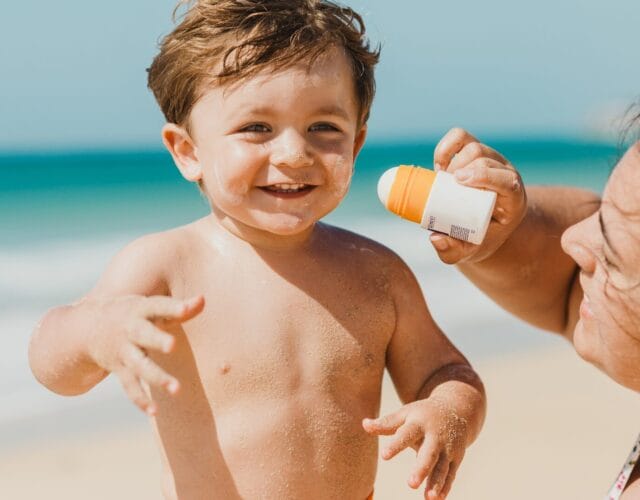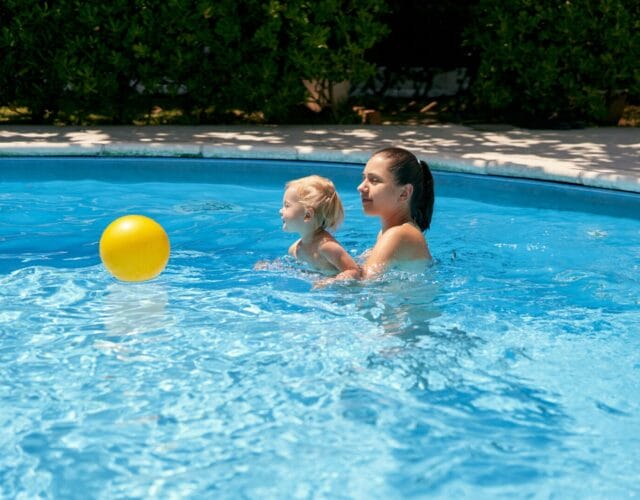Fall Allergy Season has started in North Carolina. Our weed count is 62,571 today, September 19, 2016 which is very high. Ten days ago the the weed count was 36,078.
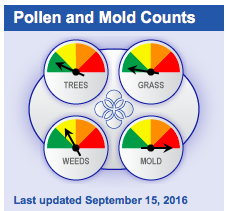
Allergy Symptoms:
- Runny nose
- Sneezing
- Tiredness
- Daily headaches
- Congestion
- Coughing
- Coughing when being active or right after being active
- Hives
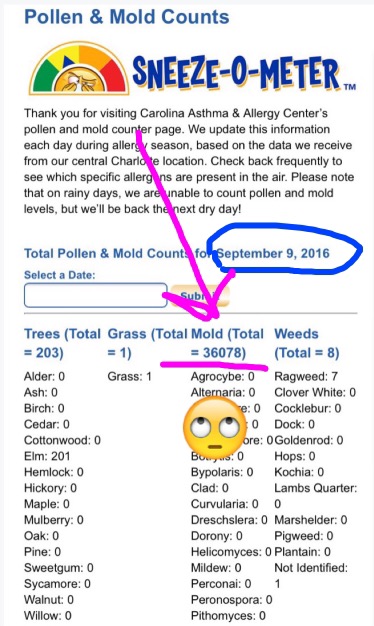
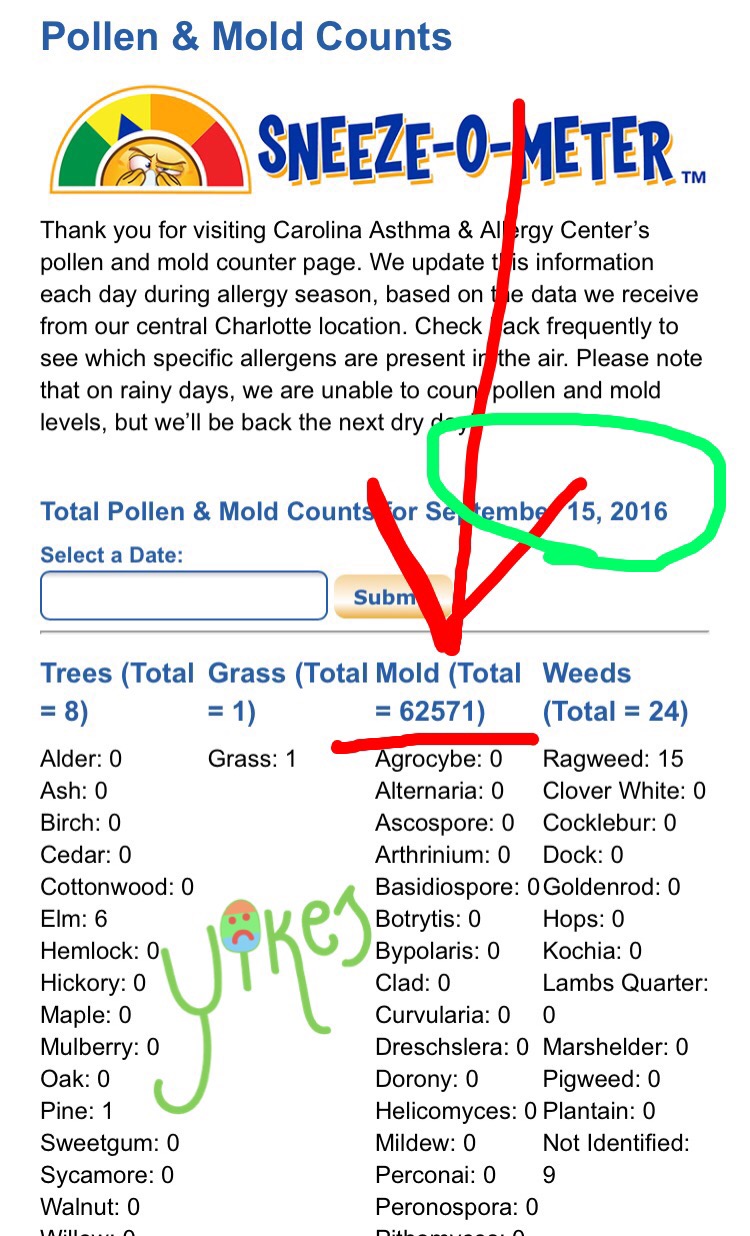
WHAT IS ….
- Ragweed – The plant usually begins to pollenate in mid-August and may continue to be a problem until a hard freeze, depending on where you live
- Mold – Mold spores are released when humidity is high, or the weather is dry and windy
- Both pollen from ragweed and mold spores get stuck on the leaves that fall on the ground in the fall. Thus raking leaves can stir up mold and ragweed, and cause severe allergies.
PHARM FREE SOLUTIONS
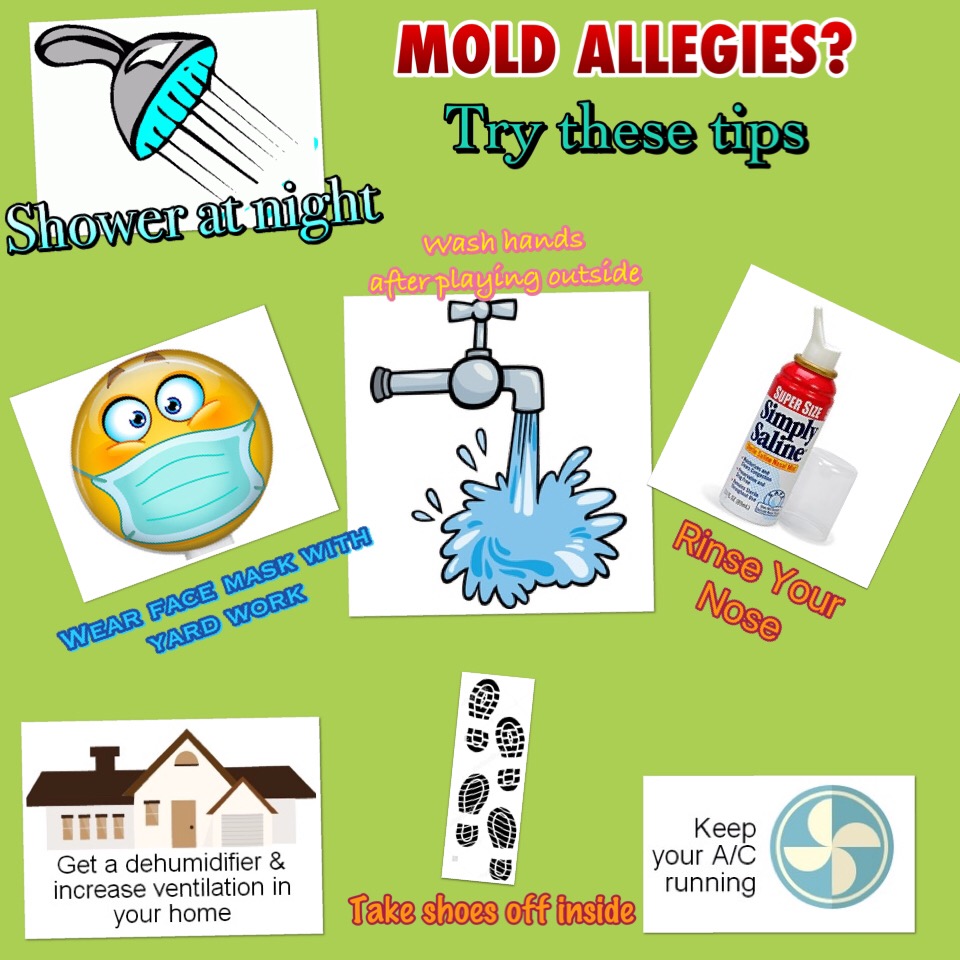
- Weed and Mold Count – know the weed and mold count to help you better prepare for your outdoor activities. Carolina Asthma and Allergy have an amazing link to the daily weed/mold count. The Sneeze-o-meter Carolina Asthma and Allergy Link
- Windows – keep windows closed (this one really stinks because it’s so beautiful outside as the weather cools off)
- Shoes– no shoes in the house – we carry weeds and mold spores all over the carpets, not to mention thousands of other chemicals, pollutants, and toxins from the great outdoor
- Costume Change – change clothes when you come home from outside
- Hand washing – wash hands right away when coming home from outside – kids love to touch their faces and eyes with dirty hands full of ragweed and mold
- Showering – shower at night and wash your hair (important tip for boys who skip this part often) – ragweed and mold loves to get stuck in the hair, especially after jumping in piles of leaves
- Saline Nose Wash – washing nose/sinuses with a saline nose spray or net pot will decrease the amount of mold residue deposited in your nares, which is the critical starting point of symptoms. Wash nares out after coming in from outside and after washing hands
- Allergen Covers– cover your pillow, mattress, and box springs in allergen covers. Allergies usually come in groups and by reducing exposure to one kind of allergen, such as dust mites, you can reduce your body’s response to other allergens, such as pollen, ragweed, mold.
- Gardening – When gardening during high mold/ragweed count days, especially raking, sweeping, and mowing the lawn, wear a face mask to decrease the amount of particles entering your nose and mouth.
IMMUNE BUILDING SOLUTIONS
Allergies are a form of systemic (whole body) inflammation.
Here are some tips to decrease the inflammatory response without
medications.
- RAW LOCAL HONEY DAILY – one teaspoon daily of local raw honey can help boost your immune system by developing oral tolerance to local pollen/ragweed/grasses/trees. Local means that the bees live near you, not just a label making “local” claims. There are pollen capsules you can take, but that is a processed product with no guarantee on how much pollen is in the capsule or where the capsule is from. Read the label and know where your honey is from.
- FRUITS AND VEGETABLES – the more you eat of these food groups a day, the less inflammation you will have in your body.
- LESS SUGAR – the body of a child can only process 4-6 packets or 12-18 grams of ADDED SUGAR a day. Sugar feeds the inflammation in your body and thus leads to more allergies AND asthma. Remember that refined carbs turn to sugar.
- Furthermore, fruits have natural sugar, this does not count towards the allotted 12-18. Please do not remove fruits from your diet because of misunderstanding the true sugar issue. Milk and unflavored yogurt also has natural sugar. Again, do not avoid these, but reduce the amount of flavored milks and flavored yogurts in the diet.
- For more information click here Immune System Fortification – supplements
MEDICATIONS
- Pills/Liquids/Chewables – Over the counter antihistamines such as Zyrtec (cetirizine), Claritin (loratadine), Allegra (fexofenadine) are non-drowsy medications that last for 24hrs in your system.
Benadryl, is a great antihistamine but it only lasts 4-6hrs and tends to make most people sleepy. - Medicated Steroid Nose Sprays – Flonase, Nasacort, or Nasonex have been shown to be as effective as oral antihistamines in treating allergy symptoms. They are generally not systemically absorbed and work great for the congestion associated with allergies. Prescriptions antihistamine nose sprays are another option to discuss with your doctor.


